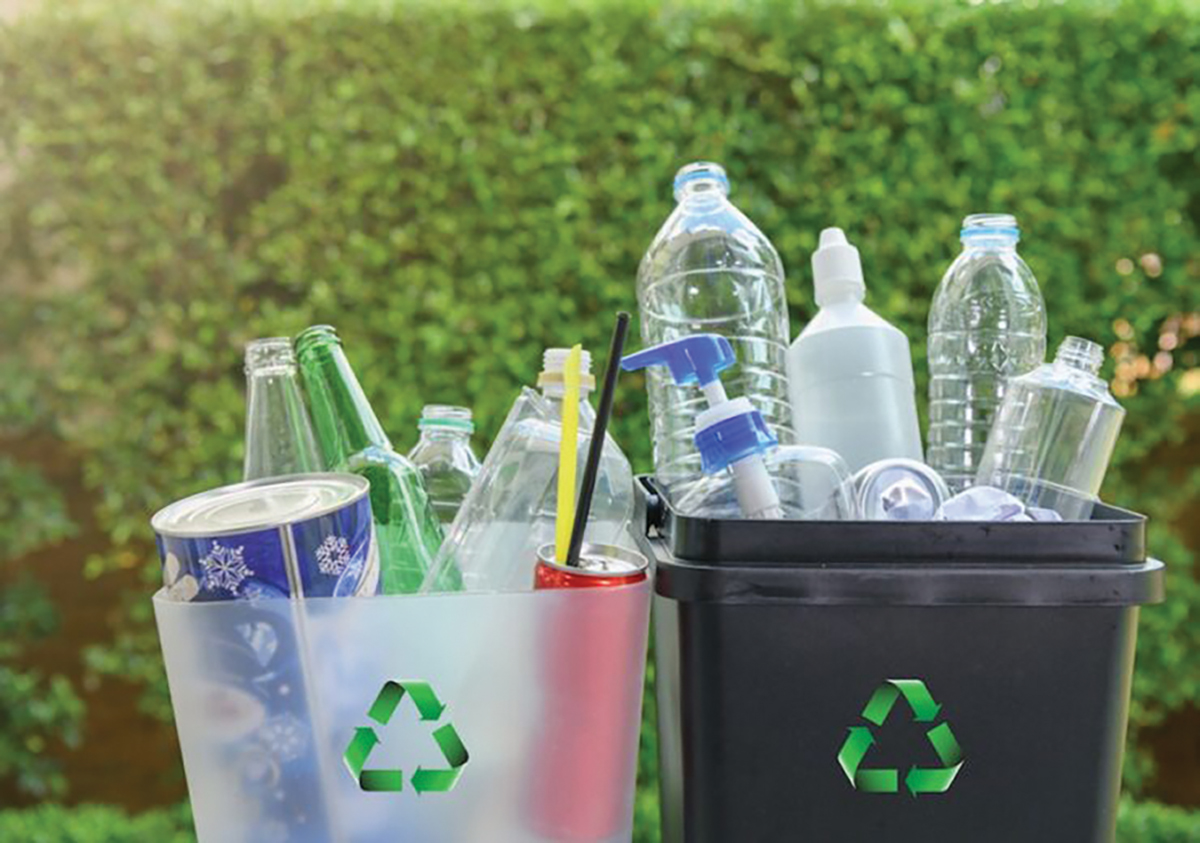
Will Plastic Become The Bane Of Our Existence?
– By Lisa Rutherford –
For some time, I’ve been concerned about the proliferation of plastics. As an oil/gas company retiree, it’s particularly troubling that the product I worked to produce in hopes of making America energy independent has instead created many problems for us. My concern was increased by the knowledge I gained during the recent University of Utah Law School Stegner Center’s 2021 symposium: “The Plastics Paradox: Societal Boon or Environmental Bane?”
In 1950 when I was a very young child, the world was virtually plastic-free. We now have 10.1 billion metric tons of plastic. In 2019 alone, 465 metric tons were produced, and half of that 10.1 billion metric tons was produced since 2006. How much is that? It equals the weight of 1,500,000,000 elephants. It’s enough to cover an area the size of Argentina ankle deep in plastic. If we stay on this trajectory, by 2050, we will have produced enough to cover the USA ankle-deep.
Seventy-four percent of that is discarded. Even recycled plastic requires virgin material for the process. Every unit of material made will eventually become waste of some type, even those with a long service lifetime. Very little, given our current system, will be recycled. While Europe’s EU 30, Sweden, and Switzerland recycle 31%, 42%, and 24% of their plastic respectively as of 2016, ours is a paltry 9%. 50-60% of our waste used to go to China until they changed their regulations which now require “minimally contaminated” material.
Plastic basically never dies. It just breaks down into particulates that are not visible and enters our food system. Plastic contains additives, most of which are toxic. And plastic almost exclusively is made from fossil fuels which result in emissions.
What can we do at this point? Useless! I know that’s a challenge. Our manufacturers have decided to use plastic on nearly everything. Of course, they have chosen plastic because it is lightweight—saves on shipping costs—protects food, and more, but at what cost to us ultimately? Manufacturers should be encouraged to use other materials. Consumers vote with their dollars. If we stop buying so much plastic, businesses will pay attention. We are massive consumers, and with that consumption comes responsibility to ourselves, our children, and this planet. Don’t get me wrong! This is more than just an individual issue. Manufacturers must have regulations, too.
After plastic use began in the 1950s, waste concerns began to grow. Still, plastic manufacturers got on top of that by creating ads such as the famous weeping Native American ad that put the blame on individuals for littering. At the same time, they continued plastic production with abandon. Manufacturers such as Coca-Cola, Nestle, and others pushed the recycling idea, knowing it would feed their bottom line while not really helping with the larger issue. Nestle asserted their water bottles would become bottles again. Nothing could be further from the truth when a mere 2% of recycling is closed loop. Coca-Cola and other manufacturers have been making and breaking promises for years. The only things really recycled are those promises. But Americans want to believe it because we want the product rather than a truly better future for ourselves or others around the world where much of our waste goes harming those who have less than we wealthy Americans do.
Plastic has some suitable applications, such as medicine. Still, we must wean ourselves from single-use plastics (plastic water bottles, eating utensils, straws, plastic food containers, take-out containers, for example), plastic garbage bags, and more. Keep in mind that the plastic with toxins in which we store food actually leaches into the food.
Should we continue recycling because most plastic cannot be recycled either for material or economic reasons? Yes, we should, but do it right and encourage local and state officials to start looking seriously at plastic regulations and laws that make polluters pay for the products they are creating and using. They are using plastic because it saves them shipping and other costs. But that savings is costing us in different ways. Of the seven recycle numbers, only plastics with numbers 1 and 2 are commonly recycled. Most end up in our landfills where toxins leach out, and even those that are incinerated are not without emissions problems.
Manufacturers could be forced to create the systems for recycling their own waste or stop making them altogether and turn to other options. Extended Producer Responsibility (EPR) laws are being considered at the state level and at the federal level, too. We must stop adding to the mountain of plastic we have already produced.
That said, we as a country and individuals must decide what uses are truly worthwhile and which are not. Look around your home. How much plastic do you see? Did you really need that? Do your kids need a lot of cheap plastic toys or would time and money be better spent on fewer and better items, hopefully without plastic? Are you teaching them what’s best for their future? It’s not just about sea turtles dying of plastic ingestion. It’s about us!
Viewpoints and perspectives expressed throughout The Independent are those of the individual contributors. They do not necessarily reflect those held by the staff of The Independent or our advertising sponsors. Your comments, rebuttals, and contributions are welcome in accordance with our Terms of Service. Please be respectful and abide by our Community Rules. If you have privacy concerns you can view our Privacy Policy here. Thank you!
Click here to submit an article, guest opinion piece, or a Letter to the Editor





HAPPY EASTER everybody ! Just stopping by…. I have been picking plastic – especially Styrofoam – out of the Desert Reserve for over 8 years. +. The further I am in the outback the more important it is to keep the area pristine. Worse than plastic iaround here is broken glass although decaying plastic shotgun casings that crumble into toxic plastic dust are not too swell either. Glass is more permanent and creates sparkling reflections you can see even miles away. Anyway, just saying hello and wishing everybody a Happy Easter. Think global but ACT local. Peace out. PS – poor Ed… still cannot let ole Trump go. LoL.
Hey, I thought you were not commenting any more. Good to see you’re still out there. Agree with your comment and Happy Easter to you, too! Stay well.
Just visiting… : ).
Hello Lisa,
I read your recent article about the “bane” of plastics. I understand your concern and your views reflect what we have been told online.
Fortunately, when one checks the science, it turns out that what we have been told online is untrue.
I just collected and read >2000 peer-reviewed articles to be certain of the facts – please see plasticsparadox.com for the evidence
At present, we are harming the environment by making unwise decisions based on bad information.
You seem sincere in your quest for a better future, so I really hope you spend some minutes to see what I uncovered.
For example:
1. We are told that we’re drowning in plastics but plastics make up less than 0.5% of the materials we use
2. We are told that plastic waste is a huge problem but plastics make up less than 0.5% of waste and are proven to have massively reduced waste
3. We are told that plastics take hundreds of years to degrade but the science proves that to be false – a plastic bags degrades in less than one year outdoors, for example
4. We are told there are huge floating islands of plastic in the oceans but they simply don’t exist…
Best regards,
Chris DeArmitt PhD, FRSC, CChem
Dr. DeArmitt, I appreciate your comment about my article but I must remind you that I wrote it after spending two days listening to experts on the subject who presented on a variety of plastic-related topics for the University of Utah’s Law School Stegner 2021 symposium, which I mentioned in my article. They, too, like yourself spend much time dealing with this topic including Anthony L. Andrady, Adjunct Professor, Department of Chemical and Biomolecular Engineering, North Carolina State University, Raleigh NC. For many years the plastic industry has been promoting the product successfully to help their bottom line. I and many others feel it’s time to push back against that lobbying effort. Although your website provides few details about your background, it does have an area titled “Who to Believe” where you state this: “I have no commercial interest as I do not make, sell or market plastics whereas the journalists and environmental groups do have a commercial interest in selling you their sensational, albeit fictional, stories.” It appears that you do have commercial interest in that you are selling a book about the issue that costs $30 to $52 – paperback or hardcover, respectively. The commercial interest you accuse journalists of having in selling their information about plastics seems no different than what you are doing. I will agree there are many useful purposes for plastic, but that does not mean we should allow for their proliferation as we have seen so far.
I recently returned from a drive to the Southwest and finally had time to read your very informative article. I live in the Pacific Northwest and am involved in a group that educates the public about plastic. It is so confusing with the chasing arrows, people think everything can be recycled.This was very evident on my trip, every recycle bin was stuffed with non-recyclable plastic! Unlike Dr. DeArmitt claims, there is no away, ever! That plastic bag does not break down and disappear, you just can’t see the microscopic particles that the fish and birds now consume. All of the stats that we have been told may seem insignificant, unfortunately, every piece of plastic ever made is still here and we continue to make more and more. The Washington Legislature has a Bill SB5022 to ban styrofoam, last year we passed a statewide plastic bag ban. The manufacturers need to take responsibility as well as the consumer!!